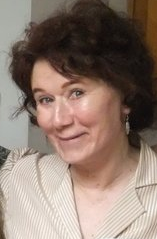
Country: Canada
Evelyn Pinkerton is a professor at Simon Fraser University, British Columbia, a maritime anthropologist who has been doing fieldwork in fishing communities in Washington State, Alaska, and British Columbia since the 1970s. Since the late 1980s, this fieldwork has been done in partnership with coastal communities in British Columbia who are working to gain more control over the management of fisheries on which they depend. She has worked particularly with several developing co-management arrangements, and it has been the strong neoliberal trends in fisheries management policy in BC which turned her more recently toward the study of the impact of neoliberalism on small-scale fisheries, and their opportunities for resistance.
Dr. Pinkerton has integrated common property theory and cultural/political ecology to consider the role communities play in the management of adjacent renewable natural resources. She has played a key role in developing the theory and practice of power-sharing and stewardship through co-management agreements. Beginning with the introduction to her 1989 edited volume Cooperative Management of Local Fisheries (UBC Press), she has been generating middle-range theoretical propositions about the conditions under which co-management is likely to arise and to endure, the scope, scale, level of power, and dynamics of co-management relationships, the developmental sequence of types of co-management rights and activities, and a framework for analyzing and comparing co-management arrangements.
What are you currently working on within the context of SSF?
EP: After co-editing with Reade Davis a 2015 Special Issue on Neoliberalism and Small-Scale Fisheries in North America, published as part of the November issue of Marine Policy, I'm editing a second Special Issue on the same topic but global in scope. There will be papers about New Zealand, Iceland, the Netherlands, France, Spain, Chile, Mexico, South Africa, Malawi, Australia, Malaysia, Nova Scotia, New Brunswick, Newfoundland, British Columbia, Washington State, New England, Alaska. Some will be about the resistance of small-scale fishing communities in constructing alternatives to neoliberalism; some will be about the damage being done: ocean grabbing, the impact on human rights and socio-political processes in coastal communities or general public policy formation. It's exciting to see how many people recognize what is occurring and are doing something about it!
If you could single out one or two most significant factors for securing sustainability of SSF, what would these factors be?
EP: Strong leadership by an energy centre, or a team, who don't give up and keep pushing their organizations and communities to form the internal bonds and the external alliances needed to have a strong voice, to make and implement the fishing rules, defend their territory, etc.















